
Discover the Hidden Gem of Muyinga
Nestled in the northeastern region of Burundi, Muyinga is a serene and picturesque city that offers a unique blend of natural beauty and cultural richness. The lush green landscapes and rolling hills provide a perfect backdrop for a tranquil getaway. Known for its friendly locals and relaxed atmosphere, Muyinga is a place where you can truly unwind and immerse yourself in the local way of life. Muyinga is not just about stunning scenery; it is also a cultural hub. The city is home to several traditional markets where you can experience the vibrant local culture and purchase handcrafted souvenirs. The nearby Kibira National Park offers an opportunity to explore dense forests and spot a variety of wildlife, making it a haven for nature enthusiasts. Additionally, Muyinga's proximity to the Ruvubu River provides excellent opportunities for fishing and bird watching. Whether you are exploring the local markets, hiking through scenic trails, or simply enjoying the peaceful ambiance, Muyinga promises a memorable experience. The city's charm lies in its simplicity and the genuine warmth of its people, making it a must-visit destination for those looking to explore the less-traveled paths of Burundi.
Local tips in Muyinga
- Visit the local markets early in the morning to experience the bustling atmosphere and get the freshest produce and handcrafted items.
- Pack comfortable walking shoes for exploring the scenic trails and natural parks around Muyinga.
- Try the local cuisine at small, family-run restaurants for an authentic taste of Burundian flavors.
- Hire a local guide for wildlife spotting in Kibira National Park to enhance your experience and learn more about the native species.
- Bring binoculars for bird watching along the Ruvubu River, as it is home to a diverse range of bird species.
Discover the Hidden Gem of Muyinga
Nestled in the northeastern region of Burundi, Muyinga is a serene and picturesque city that offers a unique blend of natural beauty and cultural richness. The lush green landscapes and rolling hills provide a perfect backdrop for a tranquil getaway. Known for its friendly locals and relaxed atmosphere, Muyinga is a place where you can truly unwind and immerse yourself in the local way of life. Muyinga is not just about stunning scenery; it is also a cultural hub. The city is home to several traditional markets where you can experience the vibrant local culture and purchase handcrafted souvenirs. The nearby Kibira National Park offers an opportunity to explore dense forests and spot a variety of wildlife, making it a haven for nature enthusiasts. Additionally, Muyinga's proximity to the Ruvubu River provides excellent opportunities for fishing and bird watching. Whether you are exploring the local markets, hiking through scenic trails, or simply enjoying the peaceful ambiance, Muyinga promises a memorable experience. The city's charm lies in its simplicity and the genuine warmth of its people, making it a must-visit destination for those looking to explore the less-traveled paths of Burundi.
When is the best time to go to Muyinga?
Iconic landmarks you can’t miss
Bujumbura Zoo
Explore Bujumbura Zoo: A Family-Friendly Destination Showcasing Wildlife and Natural Beauty in Burundi.
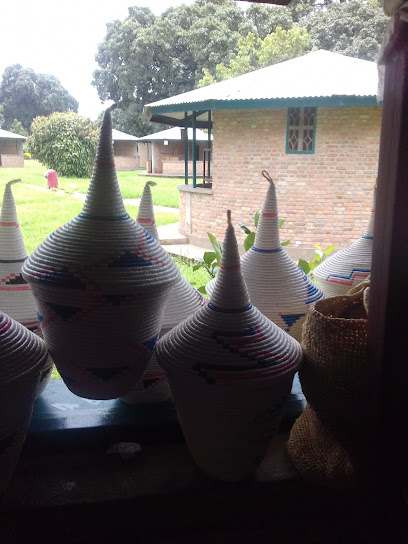
Chutes de la Karera Falls
Explore the breathtaking Chutes de la Karera Falls - a stunning natural wonder in Burundi surrounded by lush landscapes and vibrant wildlife.
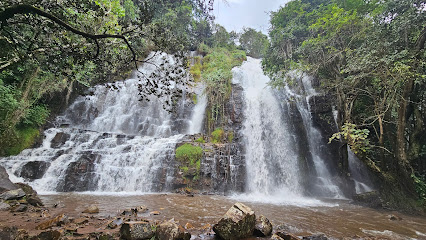
Livingston-Stanley Monument
Explore the Livingston-Stanley Monument in Ramba, Burundi, a historical tribute to adventure and exploration amidst stunning landscapes.
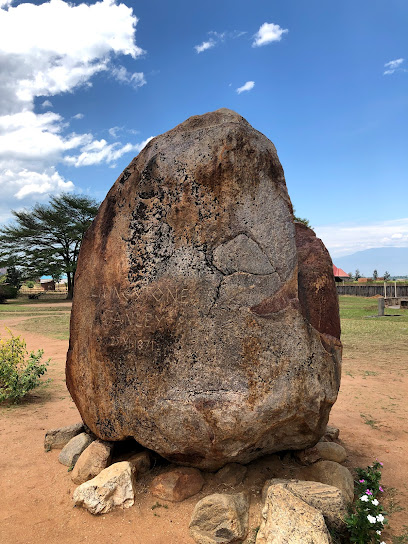
Gishora Drum Sanctuary
Experience the vibrant rhythms and rich cultural heritage at Gishora Drum Sanctuary, a UNESCO World Heritage Site celebrating Burundian music and tradition.
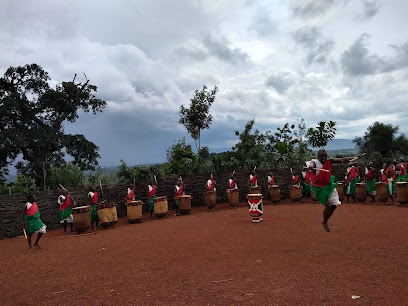
Kibira National Park
Explore the pristine wilderness of Kibira National Park, a natural paradise in Burundi, rich in biodiversity and stunning landscapes.
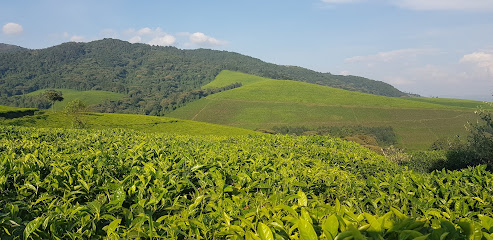
Ruvubu National Park
Explore Ruvubu National Park, a pristine natural wonder in Burundi, teeming with wildlife, stunning landscapes, and endless adventure opportunities.
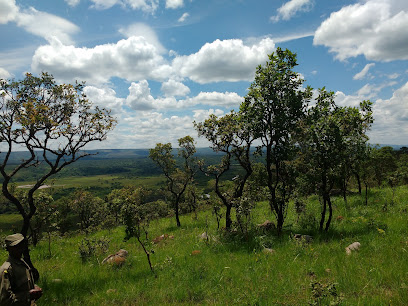
Rusizi National Park
Explore Rusizi National Park, a biodiversity hotspot in Burundi known for its hippos, crocodiles, and stunning water birds amidst breathtaking landscapes.
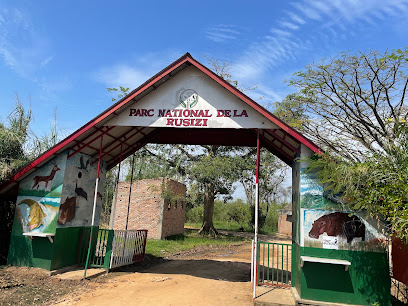
Regina Mundi Cathedral
Explore the architectural beauty and serene atmosphere of Regina Mundi Cathedral, a spiritual gem in Bujumbura's vibrant landscape.
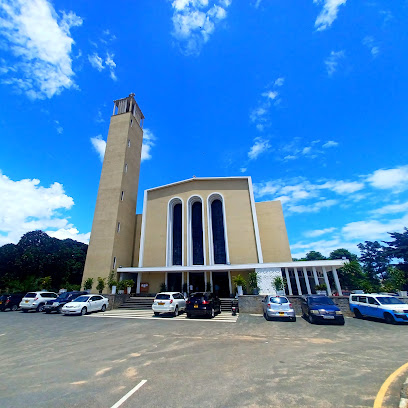
GREEN-HILLS HOTEL
Discover serenity and local charm at Green-Hills Hotel in Muyinga – a perfect retreat for adventurers and culture enthusiasts alike.
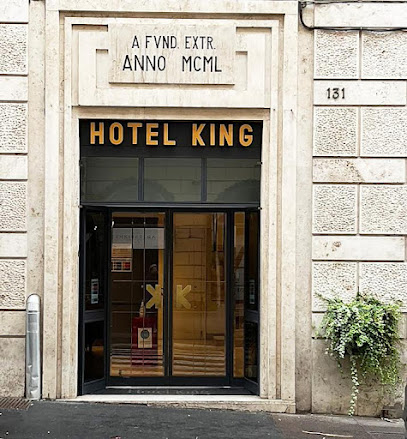
Library
Explore the heart of Muyinga at the Library, a haven for book lovers and a vibrant hub of local culture and community engagement.
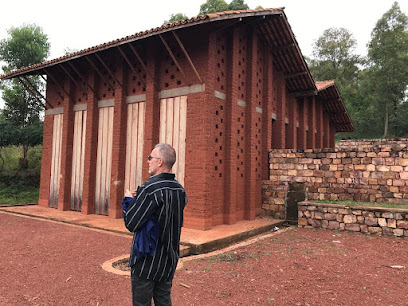
Province de Muyinga
Experience the peaceful charm of Province de Muyinga, where spiritual heritage meets stunning natural beauty in the heart of Burundi.

Unmissable attractions to see
Paroisse Catholique de Muyaga
Discover Burundi's first Catholic parish, a serene sanctuary with rich history and beautiful architecture, attracting pilgrims and history enthusiasts alike.
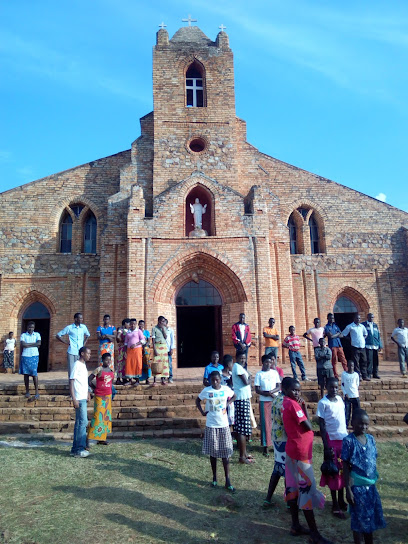
Rwegura Dam Site Area
Explore the serene beauty of Rwegura Dam Site Area in Burundi, a perfect haven for nature lovers and adventure seekers alike.
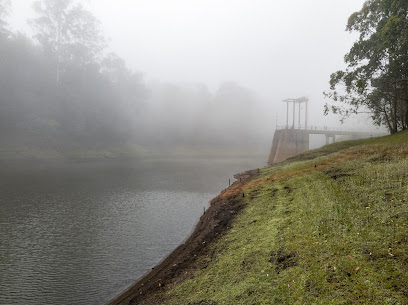
Eaux thermales KU MAHORO
Discover the healing thermal springs at Eaux thermales KU MAHORO in Tondero, Burundi, where relaxation meets natural beauty for an unforgettable experience.
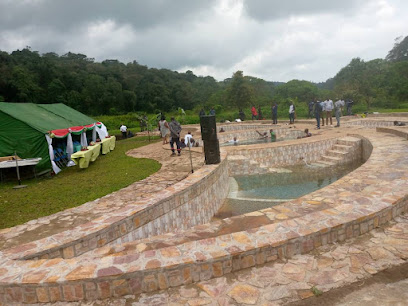
Otw
Explore the tranquility of Otw Garden in Gatabo, a breathtaking retreat filled with vibrant flora and serene landscapes perfect for relaxation.

Jardin Cercle de Gitega
Explore the tranquil beauty of Jardin Cercle de Gitega, a serene garden oasis in Burundi, perfect for relaxation and nature photography.

Kassim ibrahim Ferme airdrop muyinga gahororo
Discover the breathtaking landscapes and tranquil environment of Kassim Ibrahim Ferme, a serene park in Gahororo, Gitongwe, ideal for nature lovers.

Mountain kamaranyundo
Discover the beauty of Mountain Kamaranyundo, a hidden gem in Nyangurube, offering adventure, breathtaking views, and rich biodiversity.

Connessione Di Sacca
Experience the serene beauty of Connessione Di Sacca, a lush park in Mubuga perfect for relaxation, picnics, and connecting with nature.
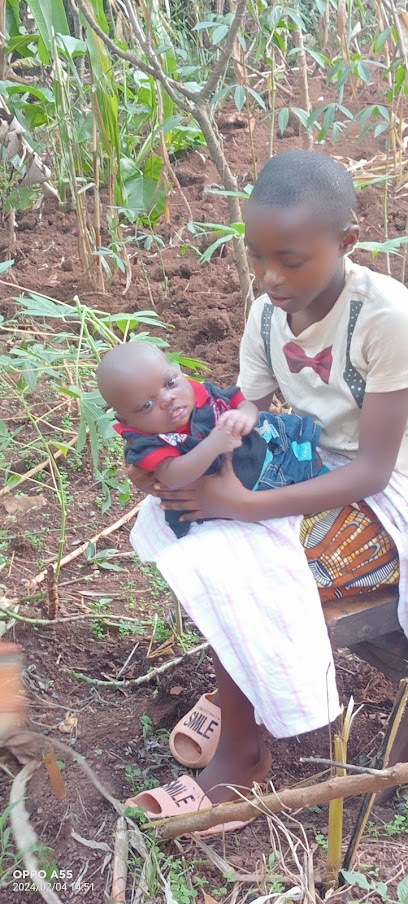
HN
Explore the tranquil beauty of HN Park in Birohe, a perfect escape for nature lovers and those seeking peace amidst lush landscapes.

monument de Monseigneur Johachim RUHUNA
Discover the Monument of Monseigneur Johachim Ruhuna in Gitega, a significant cultural landmark celebrating Burundian heritage and history.

Emery's
Explore the serene beauty of Emery's Promenade in Gitega, a perfect escape for relaxation and cultural encounters in Burundi.

Gasuma valley
Explore the serene landscapes and vibrant culture of Gasuma Valley, a hidden gem in Rwanda perfect for nature lovers and adventure seekers.

Source d'eau
Discover the tranquil beauty of Source d'eau, a serene park in Nyaruntana, perfect for relaxation and enjoying nature's splendor.

Simba - Tapis vert
Explore the lush hiking trails of Simba - Tapis Vert and immerse yourself in the breathtaking landscapes of Burundi's natural beauty.

Mu Gisenyi
Experience the beauty and culture of Rwanda at Mu Gisenyi, a stunning lakeside destination perfect for relaxation and adventure.

Essential places to dine
Harrys Grill House
Experience exceptional barbecue at Harry's Grill House in Bujumbura – where flavor meets friendly service.
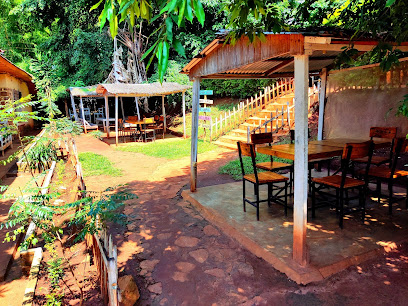
Restaurant Chez Orphée
Experience authentic Burundian flavors at Restaurant Chez Orphée in Bujumbura - where every meal is a celebration of culture and taste.
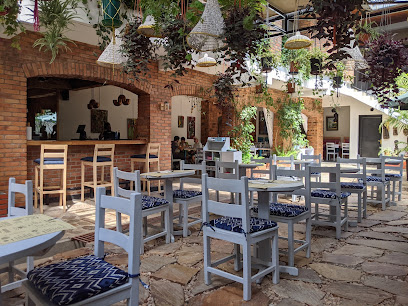
Restaurant Tanganyika
Experience authentic Burundian cuisine with breathtaking views at Restaurant Tanganyika – where every meal tells a story.
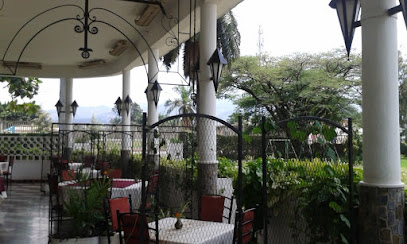
Inyambo Restaurant Bar
Discover authentic Burundian flavors at Inyambo Restaurant Bar in Bujumbura - where every meal tells a story.
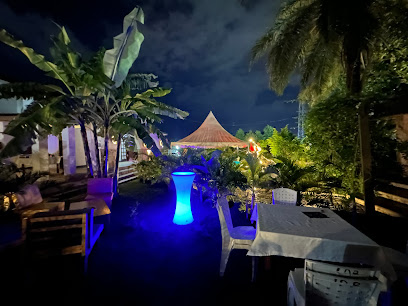
La Pirogue
Discover authentic Burundian cuisine at La Pirogue in Bujumbura - where local flavors meet vibrant hospitality.
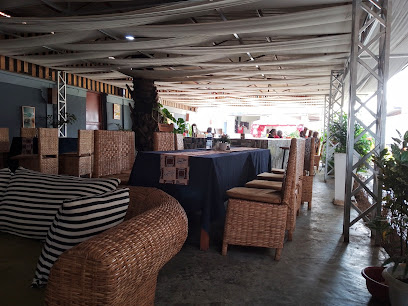
2e avenue Nyamugari
Experience authentic Burundian cuisine at 2e Avenue Nyamugari in Gitega - where tradition meets taste in every delightful dish.
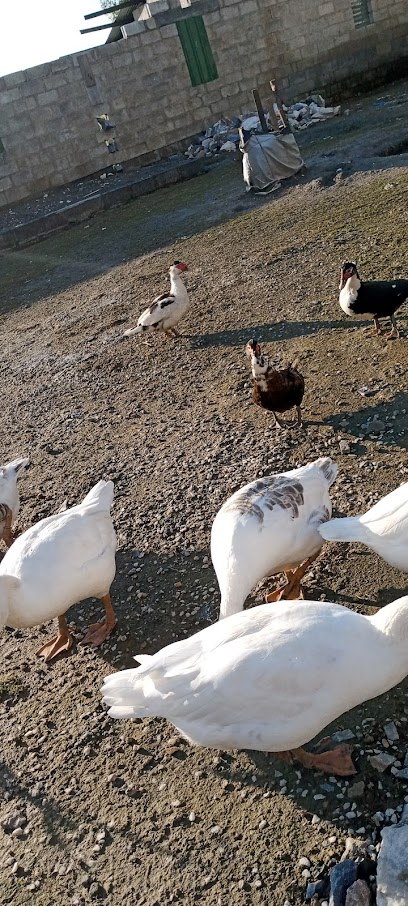
LENOX
Experience authentic Burundian cuisine at Lenox in Gitega—where every meal tells a story through rich flavors and warm hospitality.
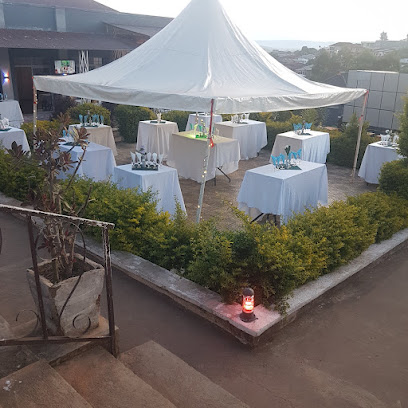
Favina Home
Experience authentic grill cuisine at Favina Home in Gitega - where flavors meet tradition in a cozy setting.
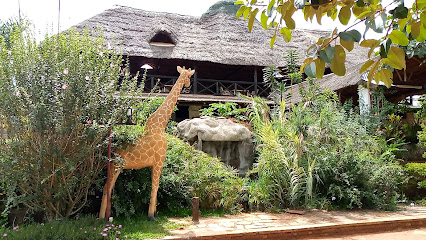
Food palace
Discover authentic Burundian flavors and international cuisine at Kayanza's renowned dining spot - Food Palace.
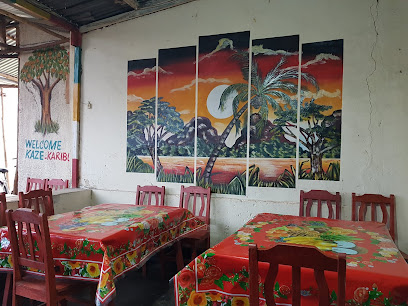
Chez COBRA
Discover authentic Burundian cuisine at Chez COBRA in Gitega - where traditional flavors meet warm hospitality.

LA CASA RESORT HOTEL
Discover exquisite dining at La Casa Resort Hotel in Muyinga, where local flavors meet international cuisine amidst serene surroundings.

Sangwe Hotel & Restaurant
Experience authentic Burundian cuisine at Sangwe Hotel & Restaurant in Ngozi – where flavor meets hospitality.

PREMIUM RESTAURANT
Savor the taste of Burundi at this premium fast food restaurant in Ngozi—where local ingredients meet global flavors.
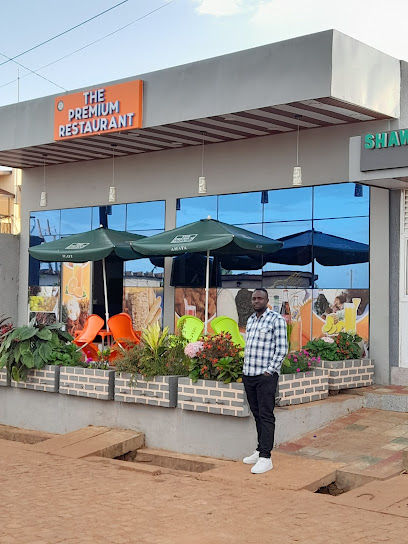
Al Huda Restaurant
Experience authentic Burundian cuisine at Al Huda Restaurant in Gitega – where every meal tells a story.
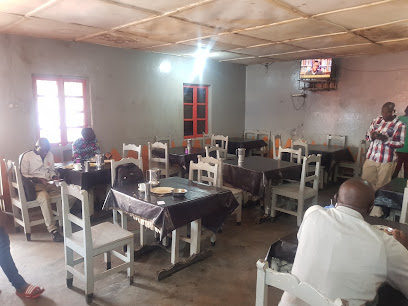
Paradise Restaurant
Experience authentic Burundian flavors at Paradise Restaurant in Gitega - where every meal tells a story.
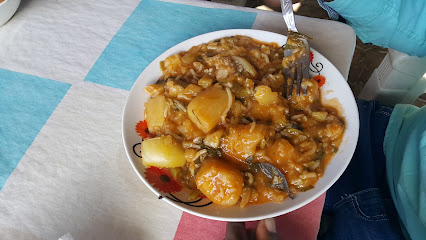
Markets, malls and hidden boutiques
Marché de Muyinga
Explore the vibrant Marché de Muyinga, a cultural hub in Burundi showcasing fresh produce, local delicacies, and unique artisan crafts.
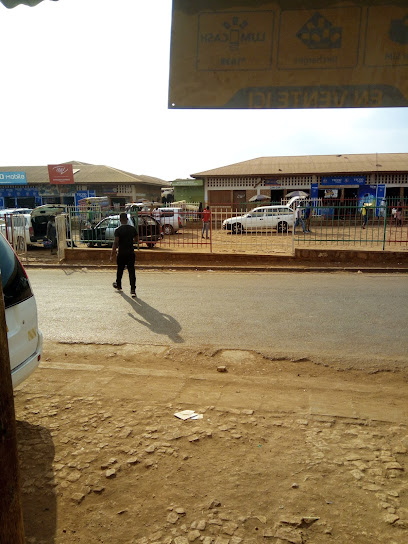
Marché de MASANGANZIRA
Explore the vibrant Marché de MASANGANZIRA in Kiremba, a hub of local culture, shopping, and delicious culinary treats that define Burundi.
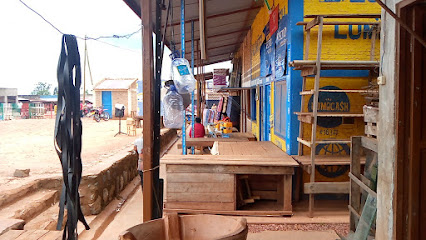
Muco Shop
Experience authentic Burundian craftsmanship at Muco Shop, your go-to destination for unique home goods in Bujumbura.
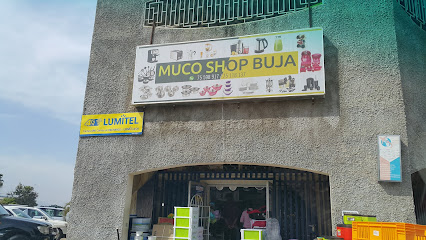
Lumitel Showroom (Gitega)
Discover the latest technology at Lumitel Showroom in Gitega, your go-to destination for electronics and telecommunications in Burundi.
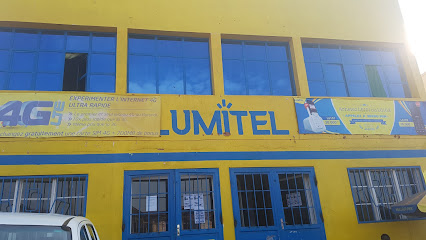
Marché de Gitega-Gitega Market
Discover the vibrant culture and flavors at Marché de Gitega, Gitega’s bustling market filled with local produce and artisan goods.
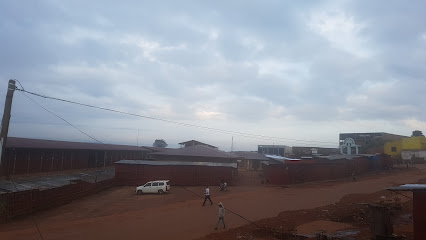
Gitega Galerie GWANZU
Discover unique Burundian crafts and fashion at Gitega Galerie GWANZU, a vibrant shopping destination in the heart of Gitega.
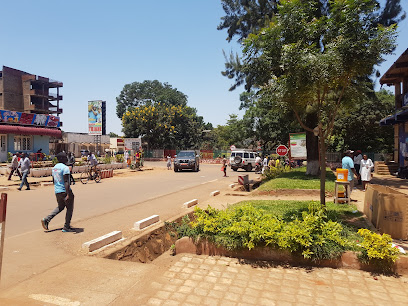
Colline Rutegama
Experience the lively atmosphere and rich culture at Colline Rutegama Shopping Mall in Kibogoye, a must-visit for every traveler.

Boutique Kwa Manweri
Explore the charm of Bujumbura with Boutique Kwa Manweri, your local grocery store for fresh produce and unique Burundian delicacies.

Marché Centrale de Gitega
Explore the lively Marché Centrale de Gitega for unique clothing and a taste of Burundian culture in the heart of Gitega.

Marché de Gikomero
Experience the vibrant culture and unique offerings of Marché de Gikomero, a must-visit shopping destination in Mbasi, Burundi.

Juma NAYABAGABO
Discover unique home goods and authentic Burundian crafts at Juma NAYABAGABO in Kabari, a perfect destination for cultural souvenirs.
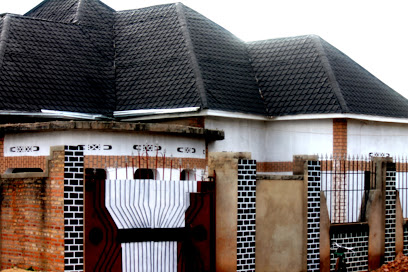
The Children
Discover local flavors and essentials at The Children grocery store in Ngozi, a must-visit spot for every traveler seeking authentic Burundian experiences.
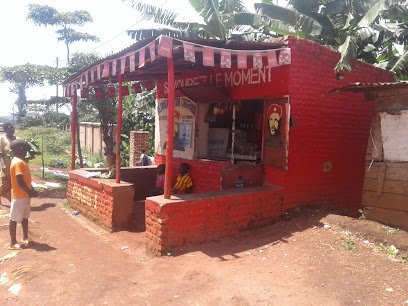
BAHONGA ALLY
Experience the pulse of Gitega's tech scene at Bahonga Ally, where local innovation meets a diverse range of electronic products.

Pharmacie Gerarale agence muyinga
Explore the unique shopping experience at Pharmacie Gerarale in Muyinga, where local culture meets vibrant community life.
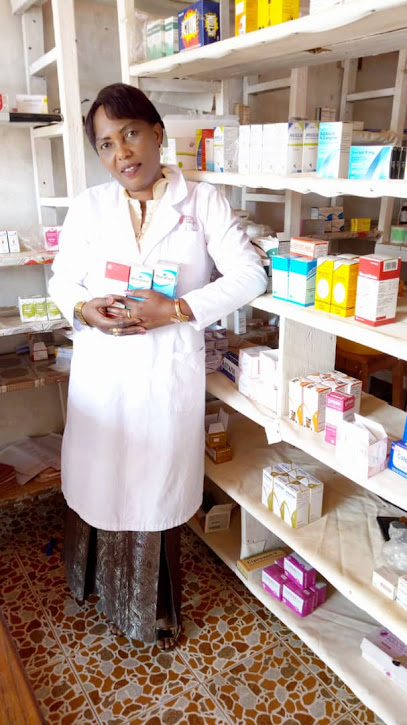
Praia
Explore the vibrant flavors of Burundi at Praia, your go-to grocery store in Mutobo for local essentials and delightful delicacies.

Essential bars & hidden hideouts
Marché de Muyinga
Discover the heart of Muyinga at Marché de Muyinga, a vibrant market filled with local produce, crafts, and delicious Burundian cuisine.
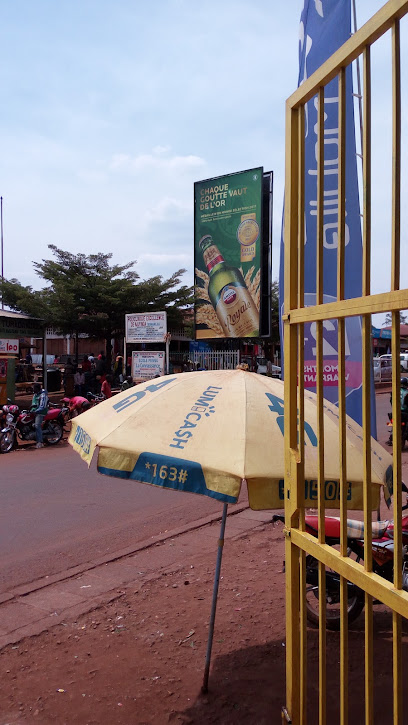
BAR FACEBOOK
Experience the lively vibe of Bar Facebook in Vumbi, where locals and tourists gather for delightful drinks and great company.

ZIGZAG BAR CHEZ TATAGARA
Experience the vibrant local culture at Zigzag Bar Chez Tatagara, a must-visit bar in Muyinga for a taste of Burundian hospitality and nightlife.

Bar KUMUZINGI Chez Fulgence
Discover the local charm and vibrant nightlife at Bar KUMUZINGI Chez Fulgence, a must-visit bar at the Muyinga Kobero border in Burundi.
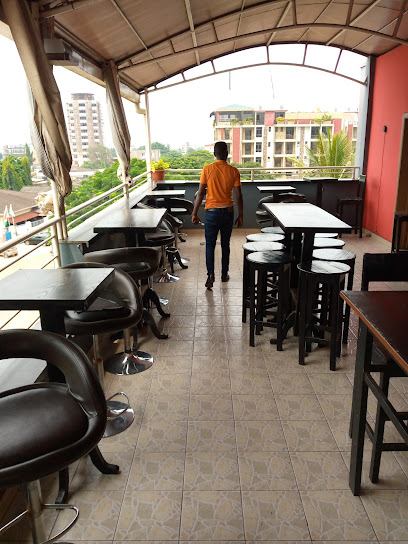
Gita Roots
Experience the vibrant atmosphere and local flavors at Gita Roots, the perfect bar in Rugari for relaxation and socializing.

BAR IWACU 2
Experience the lively atmosphere and local culture at BAR IWACU 2, a premier bar in Gasura offering refreshing drinks and good company.

Ku mpene
Experience the vibrant nightlife at Ku mpene, a lively bar in Gihosha, where local culture meets refreshing drinks and friendly faces.

Best Next Bar
Best Next Bar in Bwoga: Enjoy a vibrant atmosphere with local drinks and lively entertainment in the heart of Burundi's nightlife.

Bar des idées
Discover the vibrant atmosphere at Bar des Idées in Gasura, where local culture meets refreshing drinks and good company.

BAR KUMUGENZI
Discover the vibrant atmosphere at Bar Kumugenzi in Kigina, where local flavors and lively social scenes come together for an unforgettable experience.

Mukesh
Discover the vibrant nightlife at Mukesh, Kiremera’s favorite bar serving up local drinks in a lively social atmosphere.

Mess des officiels Muyinga
Discover the lively spirit of Muyinga at Mess des Officiels, where locals and travelers unite over refreshing drinks and cultural experiences.

Croixx rouge
Experience the lively nightlife of Kwibuye at Croixx Rouge, a bar offering local drinks, vibrant atmosphere, and social interactions.

Sunshine bar and restaurant
Experience the essence of Burundian cuisine at Sunshine Bar and Restaurant in Muyinga, where vibrant flavors meet a warm, welcoming atmosphere.

Local Phrases
-
- HelloAmakuru
[ah-mah-KOO-roo] - GoodbyeKwaheri
[kwa-HEH-ree] - YesEgo
[EH-goh] - NoOya
[OH-yah] - Please/You're welcomeKubaza
[koo-BAH-zah] - Thank youMurakoze
[moo-rah-KOH-zay] - Excuse me/SorryNdasaba
[ndah-SAH-bah] - How are you?Amakuru?
[ah-mah-KOO-roo?] - Fine. And you?Ni meza. Wewe?
[nee MEH-zah. WAY-way?] - Do you speak English?Wandika ijambo ry' icyongereza?
[wahn-DEE-kah ee-JAHM-boh ree ee-chohn-geh-REH-zah?] - I don't understandNtawumva
[ntah-woom-vah]
- HelloAmakuru
-
- I'd like to see the menu, pleaseNifise menu, kubaza
[nee-FEE-seh MEH-noo, koo-BAH-zah] - I don't eat meatNdabura ibiryo by'umuvura
[ndah-BOO-rah ee-BEE-ryo bee-oo-moo-VOO-rah] - Cheers!Amahoro!
[ah-mah-HOH-roh] - I would like to pay, pleaseNifise kwihesha, kubaza
[nee-FEE-seh kwee-heh-shah, koo-BAH-zah]
- I'd like to see the menu, pleaseNifise menu, kubaza
-
- Help!Ubumoso!
[oo-boo-MOH-soh] - Go away!Genda wewe!
[gen-dah WAY-way] - Call the Police!Gukorana abapolisi!
[goo-koh-RAH-nah ah-bah-poh-LEE-see] - Call a doctor!Gukorana umurwayi!
[goo-koh-RAH-nah oo-moo-rwah-YEE] - I'm lostNdababara
[ndah-bah-BAH-rah] - I'm illNdi mubyo
[ndee moo-BYOH]
- Help!Ubumoso!
-
- I'd like to buy...Nifise kugura...
[nee-FEE-seh koo-GOO-rah...] - I'm just lookingNzoba ndakora
[n-ZOH-bah ndah-KOH-rah] - How much is it?Igihe gituma?
[ee-GEE-heh gee-TOO-mah?] - That's too expensiveIyo ni bingana
[ee-YOH nee been-GAH-nah] - Can you lower the price?Wandike bingana?
[wahn-DEE-kay been-GAH-nah?]
- I'd like to buy...Nifise kugura...
-
- What time is it?Igihe ni saa ngapi?
[ee-GEE-heh nee sah nah-GAH-pee?] - It's one o'clockNi saa ya munani
[nee sah yah moo-NAH-nee] - Half past (10)Bwambere (10)
[bwahm-BEH-reh (10)] - MorningUmugorobara
[oo-moo-goh-roh-BAH-rah] - AfternoonUmusaraba
[oo-moo-sah-RAH-bah] - EveningUmusi
[oo-moo-SEE] - YesterdayEjo
[EH-joh] - TodayEjo
[EH-joh] - TomorrowEjo
[EH-joh] - 1Rimwe
[REE-mwe] - 2Kabiri
[KAH-bee-ree] - 3Gatatu
[gah-TAH-too] - 4Kane
[KAH-neh] - 5Gatanu
[gah-TAH-noo] - 6Gatandatu
[gah-tahn-DAH-too] - 7Kumwe
[koom-WAY] - 8Nyanya
[nyah-NYAH] - 9Icyenda
[ee-chee-EN-dah] - 10Icumi
[ee-CHOO-mee]
- What time is it?Igihe ni saa ngapi?
-
- Where's a/the...?Ehehe, ni he?
[eh-HEH, nee hay?] - What's the address?Igikoresho ni he?
[ee-ghee-koh-REH-shoh nee hay?] - Can you show me (on the map)?Wandike kuri kimenyetso?
[wahn-DEE-kay koo-REE kee-men-YET-soh?] - When's the next (bus)?Ni he igihe cy'ukwezi?
[nee hay ee-GHEE-heh chee-oo-KWEH-zee?] - A ticket (to ....)Ikimenyetso (kuri ....)
[ee-kee-men-YET-soh koo-REE]
- Where's a/the...?Ehehe, ni he?
History of Muyinga
-
Muyinga, located in the northeastern part of Burundi, has a rich history that dates back to the ancient kingdoms that once ruled the region. The area was part of the larger Great Lakes region kingdoms, where powerful rulers governed over a network of smaller chiefdoms. These kingdoms were known for their sophisticated governance structures and vibrant cultures.
-
During the late 19th and early 20th centuries, Muyinga, like the rest of Burundi, came under German and later Belgian colonial rule. The town served as an administrative center under the Belgian mandate. The colonial period had a significant impact on the socio-economic structures and development of the area.
-
Burundi gained its independence from Belgium on July 1, 1962. Muyinga, as part of the newly independent nation, experienced a period of transformation. The post-independence era was marked by political instability and ethnic tensions, which also affected the Muyinga region.
-
The Burundian Civil War, which lasted from 1993 to 2005, had profound effects on Muyinga. The region witnessed significant conflict and displacement. Despite these challenges, the community worked tirelessly to rebuild and recover in the aftermath of the war.
-
Muyinga is home to a diverse array of cultural traditions. The local population includes various ethnic groups, each contributing to the rich tapestry of customs, languages, and artistic expressions. Traditional dances, music, and crafts are integral parts of community life and are celebrated during various festivals and ceremonies.
-
In recent years, Muyinga has seen efforts towards economic development and modernization. Agriculture remains a central part of the economy, with the region being known for its coffee and tea production. There have also been initiatives to improve infrastructure and promote tourism, leveraging Muyinga's historical and cultural assets.
Muyinga Essentials
-
Muyinga is located in the northeastern part of Burundi. The nearest international airport is Bujumbura International Airport in Bujumbura, approximately 200 kilometers away. From Bujumbura, you can take a bus, taxi, or private car to Muyinga. The journey typically takes around 4 to 5 hours by road. Buses are a popular option and depart regularly from Bujumbura's central bus station.
-
Muyinga is a relatively small town, and many attractions are within walking distance. For longer distances, local taxis and motorcycle taxis (known as 'boda-bodas') are readily available and affordable. Public minibuses, although less frequent, also operate within Muyinga and connect to nearby towns and villages. Renting a car can be a convenient option if you plan to explore the surrounding countryside.
-
The official currency in Burundi is the Burundian Franc (BIF). Credit cards are not widely accepted, so it is advisable to carry cash. ATMs are available in Muyinga, but they can sometimes be unreliable or run out of cash. It is recommended to withdraw sufficient cash in Bujumbura before traveling to Muyinga. Currency exchange services are available at major banks and some hotels.
-
Muyinga is generally safe for tourists, but it is important to take standard precautions. Avoid walking alone at night and be cautious in unfamiliar areas. Petty crime, such as pickpocketing, can occur in crowded places, so keep an eye on your belongings. Some neighborhoods have higher crime rates targeting tourists; it is wise to seek local advice on which areas to avoid. Always stay vigilant and aware of your surroundings.
-
In case of emergency, dial the national emergency number 112 for immediate assistance. Muyinga has a local police station and a hospital for medical emergencies. It is highly recommended to have travel insurance that covers medical emergencies and evacuation. For minor health issues, local pharmacies are available where you can purchase over-the-counter medications.
-
Fashion: Do dress modestly, especially when visiting religious sites. Avoid wearing overly revealing clothing. Religion: Do respect local customs and traditions. Always remove your shoes and cover your head when entering places of worship. Public Transport: Do be respectful and courteous on public transport. Don't eat or drink while on public transport. Greetings: Do greet people with a handshake or a slight bow. A smile and a polite greeting in the local language (Kirundi) are appreciated. Eating & Drinking: Do try local dishes and accept food offerings graciously. Don't refuse hospitality, as it is considered impolite.
-
To experience Muyinga like a local, visit the bustling local markets where you can purchase fresh produce and traditional Burundian crafts. Engage with the locals, as they are often friendly and willing to share stories about the town's history and culture. Don't miss the opportunity to visit Muyinga's vibrant community events and festivals, which provide a glimpse into the local way of life. For a unique experience, take a walk along the scenic routes around Muyinga, offering beautiful views of the surrounding hills and valleys.
Nearby Cities to Muyinga
-
Things To Do in Kirundo
-
Things To Do in Ngozi
-
Things To Do in Butare
-
Things To Do in Nyamata
-
Things To Do in Gitega
-
Things To Do in Kayanza
-
Things To Do in Muramvya
-
Things To Do in Kigali
-
Things To Do in Muhanga
-
Things To Do in Karongi
-
Things To Do in Bujumbura
-
Things To Do in Cibitoke
-
Things To Do in Kibuye
-
Things To Do in Bururi
-
Things To Do in Rumonge




